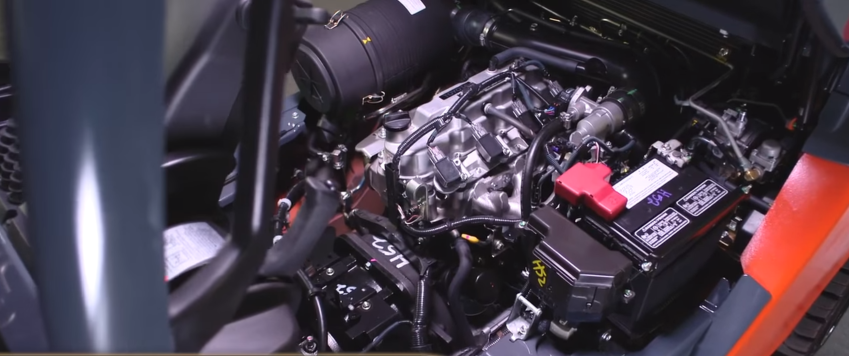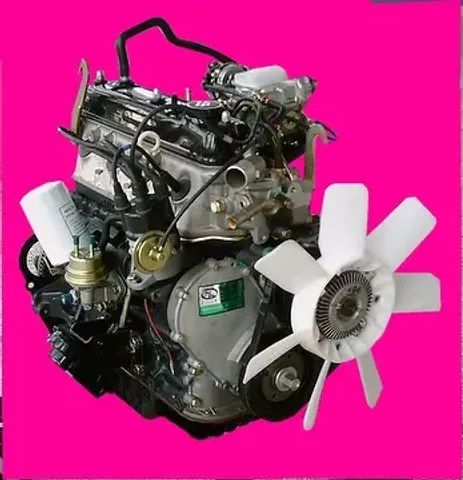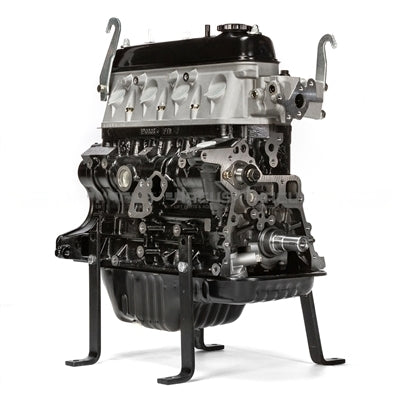What Makes the 4Y Engine Stand Out Among Other Automotive Engines
What Makes the 4Y Engine Stand Out Among Other Automotive Engines
Blog Article
Exploring the Various Kinds Of Engine: Which One Fits Your Demands?
In the quest to figure out one of the most ideal engine type for your certain needs, it is essential to review the distinctive characteristics and benefits of each choice offered. Inner combustion engines remain to control due to their dependability, while electrical engines are obtaining grip for their sustainability. Crossbreed engines supply a functional concession, and diesel engines stick out for their power sought after applications. In addition, alternative fuel engines existing cutting-edge remedies, albeit with particular restrictions. Comprehending your concerns will contribute in this decision-making process, leading to an expedition of aspects that may influence your selection.

Inner Combustion Engines
Internal burning engines (ICEs) are the backbone of modern-day transport, powering a large array of automobiles from automobiles to planes. These engines operate the principle of transforming fuel right into power through a collection of controlled surges within a combustion chamber. One of the most common kinds of ICEs include gas engines, diesel engines, and rotating engines, each designed to satisfy specific efficiency and efficiency requirements.
Gasoline engines normally utilize trigger ignition, while diesel engines rely upon compression ignition, resulting in unique distinctions in fuel effectiveness and power result (4y engine). Rotary engines, or Wankel engines, supply a compact style and smooth procedure, but are less generally used in mainstream applications
ICEs have undergone significant advancements in technology, including the introduction of turbocharging and gas shot systems, which enhance overall effectiveness and performance. Regardless of their efficiency enhancements, ICEs encounter enhancing scrutiny due to their ecological influence, specifically pertaining to greenhouse gas exhausts.
Electric Engines
As concerns about environmental sustainability and nonrenewable fuel source dependency grow, electrical engines have actually emerged as a compelling alternative to inner burning engines. These engines use electric motors powered by batteries or gas cells, giving a cleaner and a lot more effective means of propulsion.
Among the main advantages of electrical engines is their minimized discharges. Unlike conventional engines that melt fossil gas, electric engines produce absolutely no tailpipe discharges, considerably decreasing air contamination and adding to boosted public health and wellness. Additionally, the performance of electric motors frequently goes beyond that of interior combustion engines, transforming a greater percentage of energy from the source of power into useful energy for activity.
Electric engines are likewise notable for their peaceful operation, making them suitable for urban settings. 4y engine. The simplicity of their layout results in less relocating parts, which can cause reduced upkeep costs and increased reliability gradually
Nevertheless, obstacles remain, consisting of battery manufacturing impacts, billing framework, and variety constraints. Despite these hurdles, the growing investment in electrical vehicle innovation and eco-friendly energy sources factors towards a promising future for electric engines, placed to play a crucial function in the shift towards lasting transportation.
Hybrid Engines
Mixing the benefits of both electrical and traditional interior combustion engines, hybrid engines represent a flexible service in the quest for efficient and lasting transport. These engines integrate a gas or diesel motor with an electric motor, enabling for enhanced gas performance and reduced emissions compared to traditional cars.
Crossbreed engines run in a number of settings, using the electrical motor for low-speed driving and the interior burning engine for greater rates or when more power is needed. This vibrant procedure not just improves fuel economic situation yet additionally adds to a smoother driving experience. Regenerative stopping find out is an additional essential attribute, recording power commonly shed throughout stopping and redirecting it to recharge the battery.

As customers progressively prioritize eco-friendliness, crossbreed engines attract attention as a functional option, providing an efficient balance of performance, performance, and environmental responsibility. This flexibility makes them appropriate for metropolitan commuting and long-distance traveling alike.
Diesel Engines
Efficiency and power are trademarks of diesel engines, which have actually long been favored for their effectiveness and fuel economic climate. These engines run on the principle of compression ignition, where air is pressed to a high temperature level before fuel is infused, sparking it without the requirement for spark plugs. This procedure allows diesel motor to accomplish greater thermal efficiency contrasted to gasoline engines, equating right into much better gas mileage and reduced co2 emissions.
Diesel motor are especially appropriate for durable applications such as vehicles, buses, and commercial machinery, where torque and toughness are paramount. Their design normally consists of web more powerful components to endure the higher stress created throughout procedure, resulting in longer service life and decreased upkeep expenses.

Alternate Fuel Engines
While diesel engines have lengthy controlled the landscape of durable power sources, alternative fuel engines are gaining grip as sensible options for an extra lasting future. These engines use a variety of gas, such as pressed natural gas (CNG), gas, ethanol, and hydrogen, intending to minimize greenhouse gas emissions and dependence on fossil gas.
One significant benefit of alternate fuel engines is their possible to lower carbon impacts. CNG engines discharge fewer toxins compared to typical diesel engines, making them suitable for city transit systems and fleets looking for to enhance air high quality. Ethanol, stemmed from biomass, not just decreases exhausts but additionally supports farming economies.
Hydrogen gas cells represent an innovative advancement in this realm, supplying zero-emission power through a chemical response between hydrogen and oxygen. Challenges such as facilities growth and manufacturing costs stay challenges to prevalent fostering.
Conclusion
In final thought, choosing the ideal engine kind necessitates careful consideration of certain demands and choices. Inner combustion engines offer dependability, while electric engines focus on sustainability and reduced maintenance. Hybrid engines combine the advantages of both, improving effectiveness, whereas diesel motor give exceptional power and torque for durable applications. Alternate gas engines existing eco-friendly options, albeit with potential infrastructure challenges. Ultimately, an extensive evaluation of driving practices and environmental values will assist in an educated choice relating to engine choice.
Crossbreed engines use a flexible compromise, and diesel engines stand out for their power in demanding applications. The most common kinds of ICEs consist of gas engines, diesel engines, and rotary engines, each designed to fulfill certain performance and performance demands.
Unlike conventional engines that burn fossil gas, electric engines produce absolutely no tailpipe discharges, considerably lowering air contamination and contributing to boosted public health and wellness.Hybrid engines run in a number of modes, making use of the electric motor for low-speed driving and the internal burning engine for higher rates or when even more power is needed. Crossbreed engines combine the benefits of both, Discover More enhancing performance, whereas diesel engines offer superior power and torque for durable applications.
Report this page